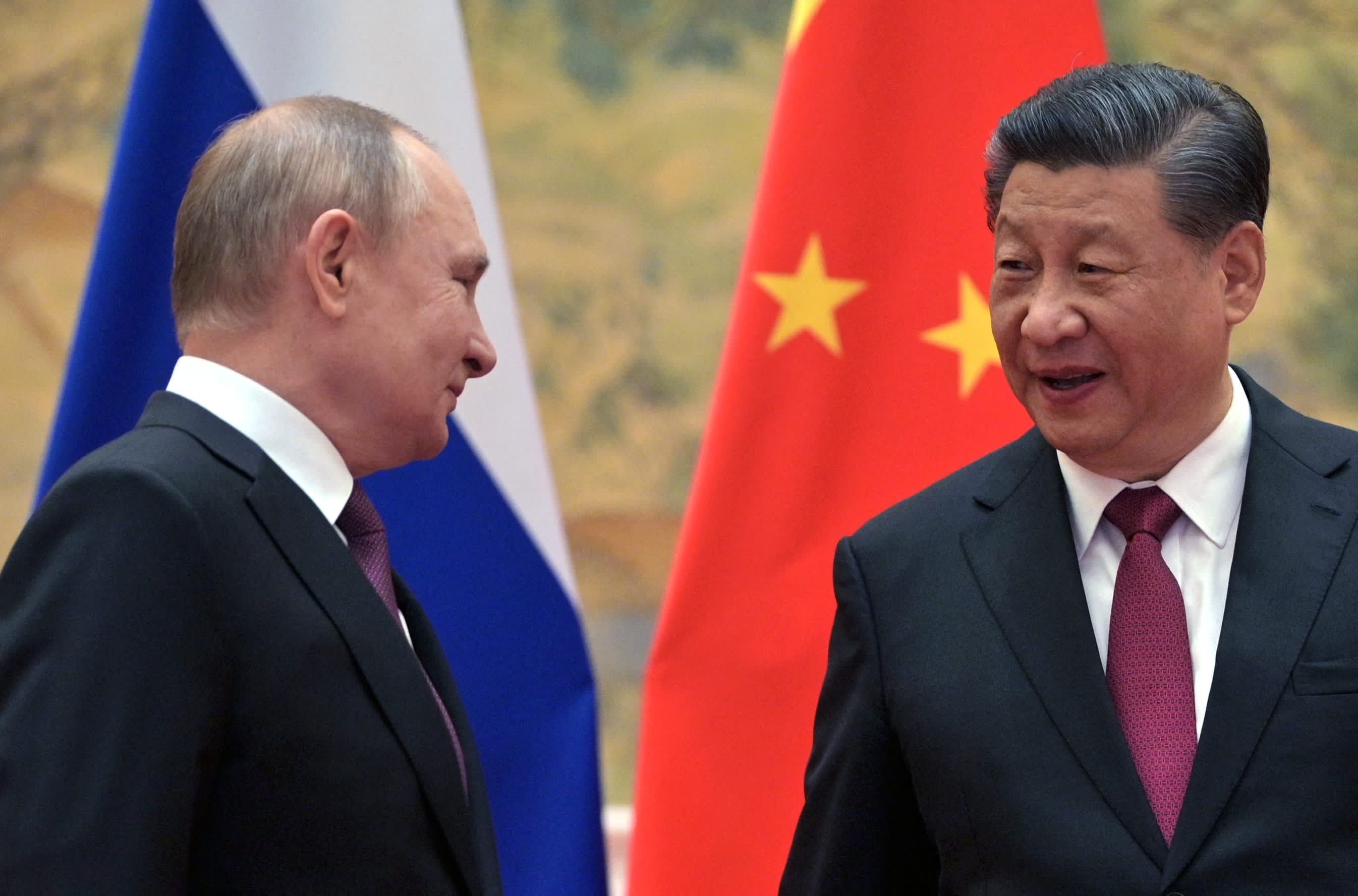
China will consider its own interests when deciding whether it should help Russia cope with the impact of Western sanctions as a result of the Ukraine war, according to a former deputy sanctions coordinator for the U.S. State Department.
“The U.S. government will see China as very important here,” Richard Nephew told CNBC Monday, in responding to a question on how important China’s role is in ensuring the efficacy of U.S. sanctions. He added that the Chinese have the ability to offer “some degree” of support for Russia as Moscow suffers the fallout from those sanctions.
The Chinese are always going to consider their national interests, and they still have a substantial interest in being able to do business in Europe, do business in the United States.Richard NephewSenior research scholar, Columbia University
Following Russia’s invasion of Ukraine, the U.S. and European Union have stepped in with sanctions on Russia’s banks, central bank and on the assets of its oligarchs. The U.S. last week further imposed bans on Russian oil.
Investors are watching closely to see what China will do as those sanctions hit Russia’s economy. Moscow is counting on Beijing for help to cope with the blow to its economy, the Financial Times reported. However, the U.S. is warning China not to support the rogue country.
“The Chinese are always going to consider their national interests, and they still have a substantial interest in being able to do business in Europe, do business in the United States,” Nephew told CNBC’s “Street Signs Asia.”
“The degree to which China is seen as undermining the sanctions campaign that the United States or Europe are pursuing may potentially adversely affect that. I think the Chinese are going to hold that pretty seriously.”
Since Russia’s attack on Ukraine, Beijing has refused to call it an invasion and said China would maintain normal trade with both countries. China has not joined U.S., EU and other countries’ sanctions on Russia. Last week, however, Premier Li Keqiang said China was “deeply” worried about the crisis in Ukraine, and warned that sanctions will hurt global growth.
But if Washington was to “strong-arm” Beijing on not supporting Russia, it’s “unlikely to work wonders,” said Nephew, currently a senior research scholar at Columbia University.
“But at the same time, I think that they will even set that aside and the frustration, irritation, and with that aside, in order to ensure that their own interests are taken into account,” he said referring to China.
That could mean not cooperating with Russia quietly, “but certainly not flagrantly violate U.S., European sanctions on Russia,” he added.
U.S. National Security Advisor Jake Sullivan is scheduled for talks Monday with China’s top foreign policy official, Yang Jiechi, to discuss the invasion on Ukraine.
The White House previously said China’s trade with Russia isn’t enough to offset the impact of U.S. and European sanctions on Moscow. It said China and Russia’s share of the global economy is far less than that of the Group of Seven countries — which includes the U.S. and Germany.
China is the largest trade partner for Russia and Ukraine, and trade between China and Russia reached a record high of $146.9 billion in 2021, up 35.8% year-on-year, according to China’s customs agency. China’s imports from Russia exceeded exports by more than $10 billion last year.
Alexander Gabuev, senior fellow and Russia chair at think-tank Carnegie Moscow Center, said he expects China to be “religious about observing” the U.S. and EU sanctions. But Beijing “will do everything possible” outside of the scope of the sanctions, he added.
One possibility is that, once the war situation stabilizes, China could seize opportunities to buy Russian oil and gas on the cheap, Gabuev told CNBC’s “Capital Connection” on Monday.
“There will be no formal violation of U.S. and EU sanctions, but that will be a significant material lifeline to the regime,” he said.
— CNBC’s Evelyn Cheng contributed to this report.




